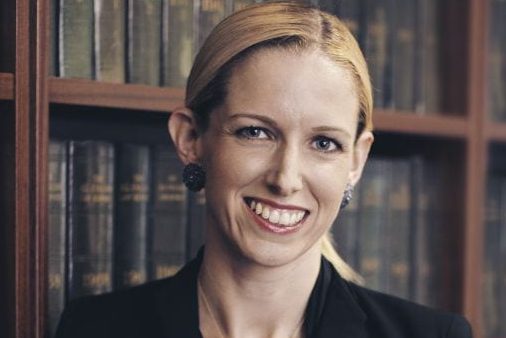
“It saddens me to have to write this article. However, I must respond lest others too easily accept columnist Jack Waterford’s criticisms and strictures of the Sofronoff Inquiry, its staff and the police,” writes HUGH SELBY.
WITHIN the past few days an article has been published in “The Canberra Times” and thereafter on the well-known “Pearls and Irritations” website. The title is “Sofronoff endorses the status quo on rape case”.

The author of the article, Jack Waterford, has had a long and respected career in Canberra’s newsprint media, covering many major events with important insights drawn from that career and his talent.
I have been selective in my choice of issues to address in rebuttal. I have been selective not only because of time and space constraints, but also because it saddens me to have to write this article.
However, I must respond lest others too easily accept his criticisms and strictures of the Inquiry, its staff, and the police.
First and foremost, any criticism of the Inquiry and its report must be based upon explicit attention to the Terms of Reference that set out the limits of what it could examine and upon what it could report.
Here they are:
- “Whether any police officers failed to act in accordance with their duties or acted in breach of their duties”. To this term the findings were mostly favourable to police.
- “Whether the Director of Public Prosecutions failed to act in accordance with his duties or acted in breach of his duties”. To this term, the findings were that he failed and breached his duties.
- “Whether the Victims of Crime Commissioner acted in accordance with the relevant statutory framework in terms of support provided to the complainant”. To this term, the finding was that she complied.
Those are the issues found in Commissioner Walter Sofronoff KC’s Board of Inquiry Report.
That some or many of us might have wanted more is not to the point. Any criticism of the ambit of the Inquiry should be addressed to the Government and those bodies, if any, consulted by them before deciding those terms of reference.
Second, drawing upon my daily reports of the public hearings, my experience both prosecuting and defending sexual assault matters, my interactions with police in four jurisdictions, and my graduate level teaching of criminal practice and procedure I found, for the reasons I give below, each of the following remarks to be misleading:
1. About the Inquiry, Mr Waterford writes:
“His [Sofronoff’s] report would not “engender any confidence in future better treatment for any other woman who had been sexually assaulted”.
This assertion presumes both that the complainant was sexually assaulted and that she received something other than “good treatment”.
Those presumptions are displaced by the discussion within the Report of the entirety of the police interaction with the complainant. Let it be noted that the complainant chose not to follow the usual pathway that was readily open to her.
“Sofronoff’s recommendations involve no systemic ‘reforms’ or investigation into the robustness, fairness or respect for rights [within] existing laws“
Refer to the Terms of Reference above. The Inquiry addresses, inter alia, the presumption of innocence, tests for charging and going to trial, and disclosure obligations. See my earlier “CityNews” article on these aspects.
“Defendants in sexual assault matters have many more rights and defences that bank robbers, people guilty of assault….”
Apart from having no connection with the Terms of Reference this assertion is made without evidence to support it. It is contrary to my experience.

2. He is scathing of our police who investigate sexual offences:
“[The] Inquiry lost interest in investigating the investigators, though this [ the investigation] was the core of the problem”.
Followers of the public hearings in which a number of police were questioned, and readers of the Report, will find that this assertion lacks a factual basis.
“The fundamental problem – the attitudes and mental and emotional baggage and insights that sexual offence investigators – particularly the good old white boys – have been bringing to the job”
This is a fact-free attack upon the dedicated members of the sexual assault investigation teams and their supervisors. It is rebutted not only by the Inquiry consideration of how they went, and go about, their job, but also by the youthfulness, commitment and genders of the investigators.
“The inquiry might have pursued some indications that some AFP figures were attempting to set the DPP up with pre-arranged disputes about legal privilege and disclosure”.
This is to reverse what occurred. The indisputable facts are that our then DPP was inexcusably wrong in his approach to the issues of both client legal privilege (the client was the AFP) and the disclosure obligations to the Defence. These matters are discussed at great length in the Report.
“No future rape victim has any reason to hope or expect that police, who regard themselves as vindicated, will change their bad habits or their bad thinking”.
Neither “bad habits” nor “bad thinking” by police was identified in this inquiry. That is not to say that they were “error free”. It is not to say either that the constant search for improving practices is not a necessary aim. The police were open about their need to improve.
A future victim of sexual assault in the ACT has every reason to expect that if they conduct themselves in an open, timely, co-operative manner with the police and the Victims of Crime office then they will be well treated and their allegation well investigated.

3. He attacks counsel assisting:
“Counsel assisting immediately went for Drumgold’s throat and reduced him to a shivering wreck”.
That is not what happened, not even close. Counsel assisting, Erica Longbottom KC, a competent female senior counsel, politely explored Mr Drumgold’s allegations with him. Progressively what all viewers saw was his retraction of his allegations, his failure to follow well known procedural requirements, and – above all – his lack of insight into how he had cast aside tenets of prosecution practice to serve some other interests that had become more important for him.
There were others, most noticeably Mr Drumgold’s counsel, who rather more obviously used a combative style when questioning.
Mr Drumgold was the cause and the means of his own destruction.
4. He uncritically presumes the validity not only of the complainant’s claim to be a victim, but also her public statements and conduct.
“No one could draw from what happened any lesson that the alleged victim had been unwise to use one of her few weapons – the power of publicity – to push the police on. She would have got nowhere without it.”
Perhaps we have been reading and writing about two different cases. It was the complainant who controlled the timing of what happened and when it happened.
True it is that the police were pushed into doing things about which they had serious, and justified concerns. Strange as it may seem, the police primarily serve we, the community. “Keeping us all safe” requires that they do their best to keep an open, inquiring mind about allegations, so that victims of false complaints are a small number.
“The victim… had been publicly loud (and very reasonably so) about her treatment by detectives from the start. She was treated as an object of suspicion, with the search on for anything that might discredit her.”
This has to be called out for what is – an allegation without substance and derived from a wholly uncritical willingness to accept this complainant as someone free from criticism. The facts surrounding the complainant and her allegations, as they have emerged in recent months, suggest such an approach to be naïve.
“CityNews” legal commentator and former barrister Hugh Selby wrote unmatched, running commentary on the Sofronoff Inquiry’s public hearings, focusing upon the advocacy and witness performances. The “CityNews” coverage of the inquiry, including his daily reviews, is here.
Hugh Selby’s free podcasts on “Witness Essentials” and “Advocacy in court: preparation and performance” can be heard on the best known podcast sites.
Who can be trusted?
In a world of spin and confusion, there’s never been a more important time to support independent journalism in Canberra.
If you trust our work online and want to enforce the power of independent voices, I invite you to make a small contribution.
Every dollar of support is invested back into our journalism to help keep citynews.com.au strong and free.
Thank you,
Ian Meikle, editor





Leave a Reply